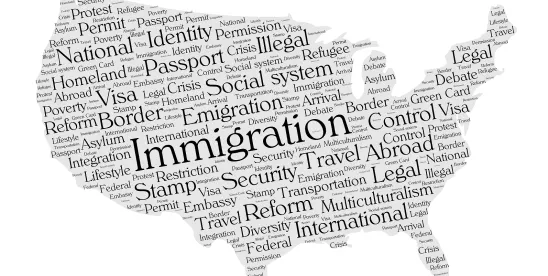Recent policy shifts and court rulings have dramatically altered the employment landscape for thousands of immigrants in the United States. Among the most significant changes is the termination of the CHNV Parole Program, which had provided temporary work authorization to nationals from Cuba, Haiti, Nicaragua, and Venezuela. With this program now officially ended, employers face a dual challenge: maintaining compliance with federal immigration laws while avoiding unlawful discrimination.
Understanding Parole in the Immigration Context
In immigration law, “parole” refers to a temporary permission granted by the U.S. Department of Homeland Security (DHS) that allows certain foreign nationals to enter and remain in the United States without a visa. This is typically granted for urgent humanitarian reasons or when there is a significant public benefit. Importantly, parole does not confer legal immigration status and can be revoked at any time.
Employer Obligations Under Federal Law
Employers are legally required to verify the identity and work authorization of every new hire. Under the Immigration Reform and Control Act (IRCA), employers must:
- Complete Form I-9 for each employee.
- Refrain from knowingly hiring or continuing to employ individuals who are not authorized to work in the U.S.
- Avoid document abuse, such as requesting more or different documents than required or rejecting valid documents.
Noncompliance can result in civil fines, criminal penalties, and even disqualification from federal contracts and grants.
Who Can Work Legally?
Undocumented immigrants cannot legally work in the U.S. unless they have specific authorization. Acceptable forms of work authorization include:
- A valid Employment Authorization Document (EAD)
- A Green Card (lawful permanent resident status)
- Temporary Protected Status (TPS) or asylum with work authorization
- A special visa or humanitarian parole
Employers who hire individuals without valid authorization expose themselves to significant legal and financial risk.
The Rise and Fall of the CHNV Parole Program
The CHNV parole program was introduced in two phases: first for Venezuelan nationals in October 2022, and then expanded in January 2023 to include Cubans, Haitians, and Nicaraguans. The program allowed up to 30,000 individuals per month to enter the U.S. with temporary protection and eligibility to apply for work authorization.
However, on March 25, 2025, DHS announced the program’s termination. Although a federal court temporarily paused the decision in April, the U.S. Supreme Court lifted the injunction on May 30, 2025. By June 12, DHS began notifying CHNV parolees that their parole and employment authorization were immediately revoked unless they had obtained another lawful status. Those without legal status were encouraged to self-deport.
Discrimination Risks in the Wake of Policy Changes
While employers must ensure that all employees are authorized to work, they must also avoid violating anti-discrimination provisions under the Immigration and Nationality Act (INA) and Title VII of the Civil Rights Act. These laws prohibit:
- Discrimination based on national origin or citizenship status
- Unfair documentary practices during the I-9 process
- Retaliation against employees who assert their rights
If an employee’s immigration status changes, employers must:
- Reverify employment eligibility if the employee presents new valid documents
- Terminate employment only if the employee cannot provide valid work authorization
- Avoid assumptions or actions based on rumors or profiling
Employers cannot legally single out employees from CHNV countries for reverification unless there is a legitimate, non-discriminatory reason to do so.
Navigating the Gray Areas
One of the challenges employers face is that DHS uses similar category codes for various parole programs, making it difficult to identify CHNV beneficiaries without risking discriminatory practices. In an effort to comply, some employers may overcorrect—conducting mass terminations or requiring reverification from all foreign-born employees. These actions can lead to legal exposure under anti-discrimination laws.
The Department of Justice’s Immigrant and Employee Rights (IER) Section has emphasized that employment decisions must not be based on citizenship, immigration status, or national origin.
Best Practices for Employers
To protect against legal liability, employers should:
- Apply reverification policies uniformly to all employees with expiring work authorization
- Allow employees to choose from the acceptable I-9 document, do not request specific ones
- Train HR personnel on both I-9 compliance and anti-discrimination laws




 />i
/>i
